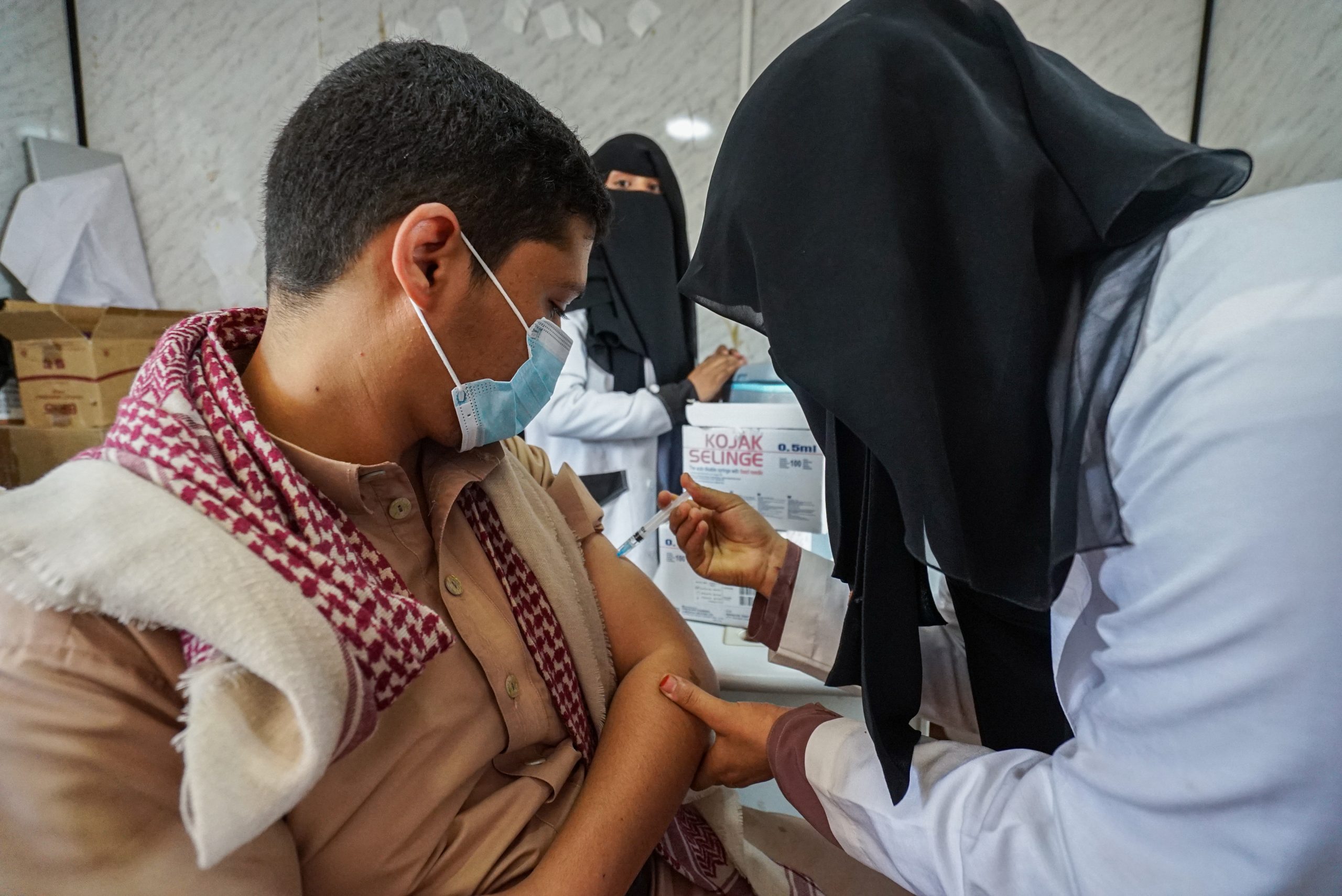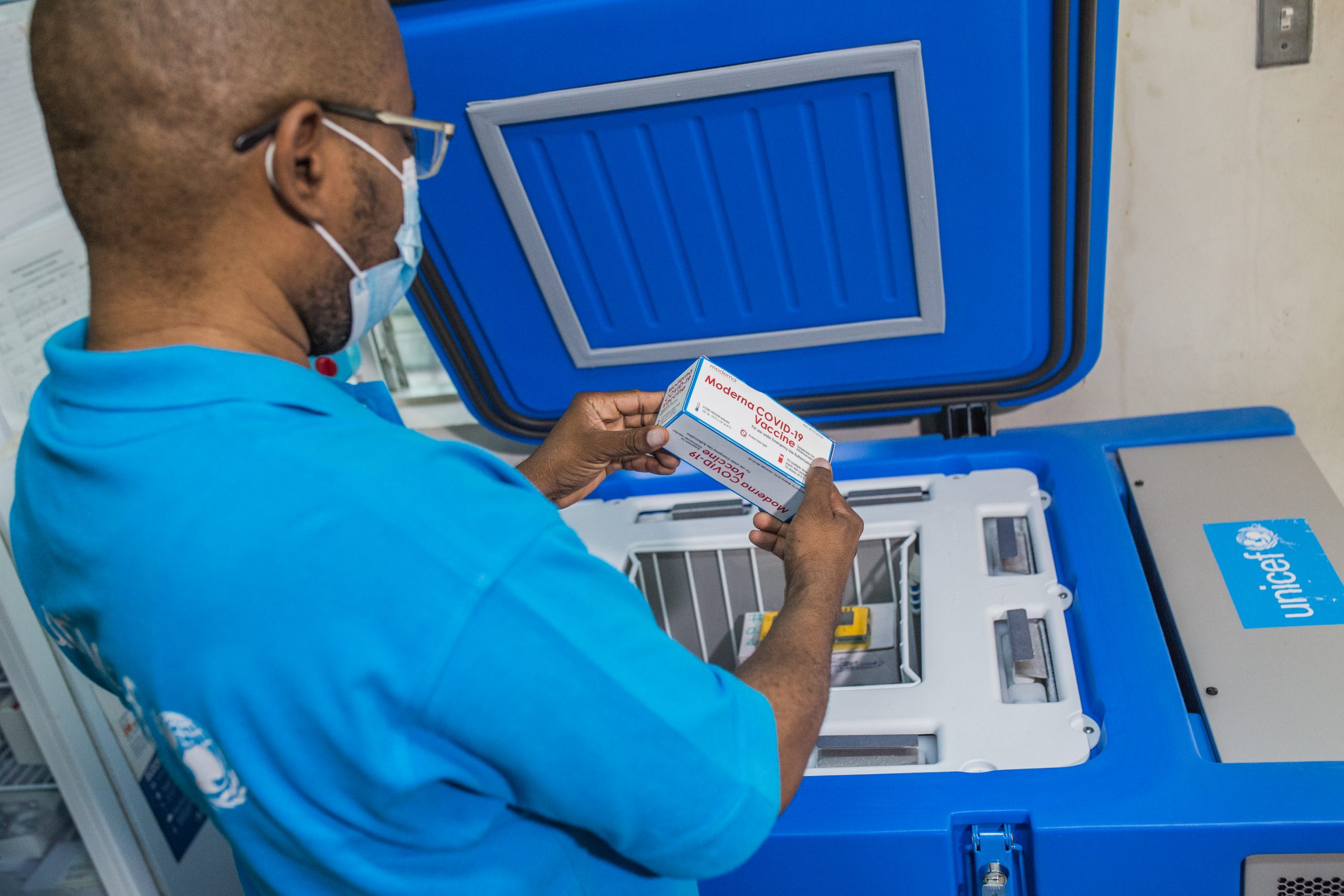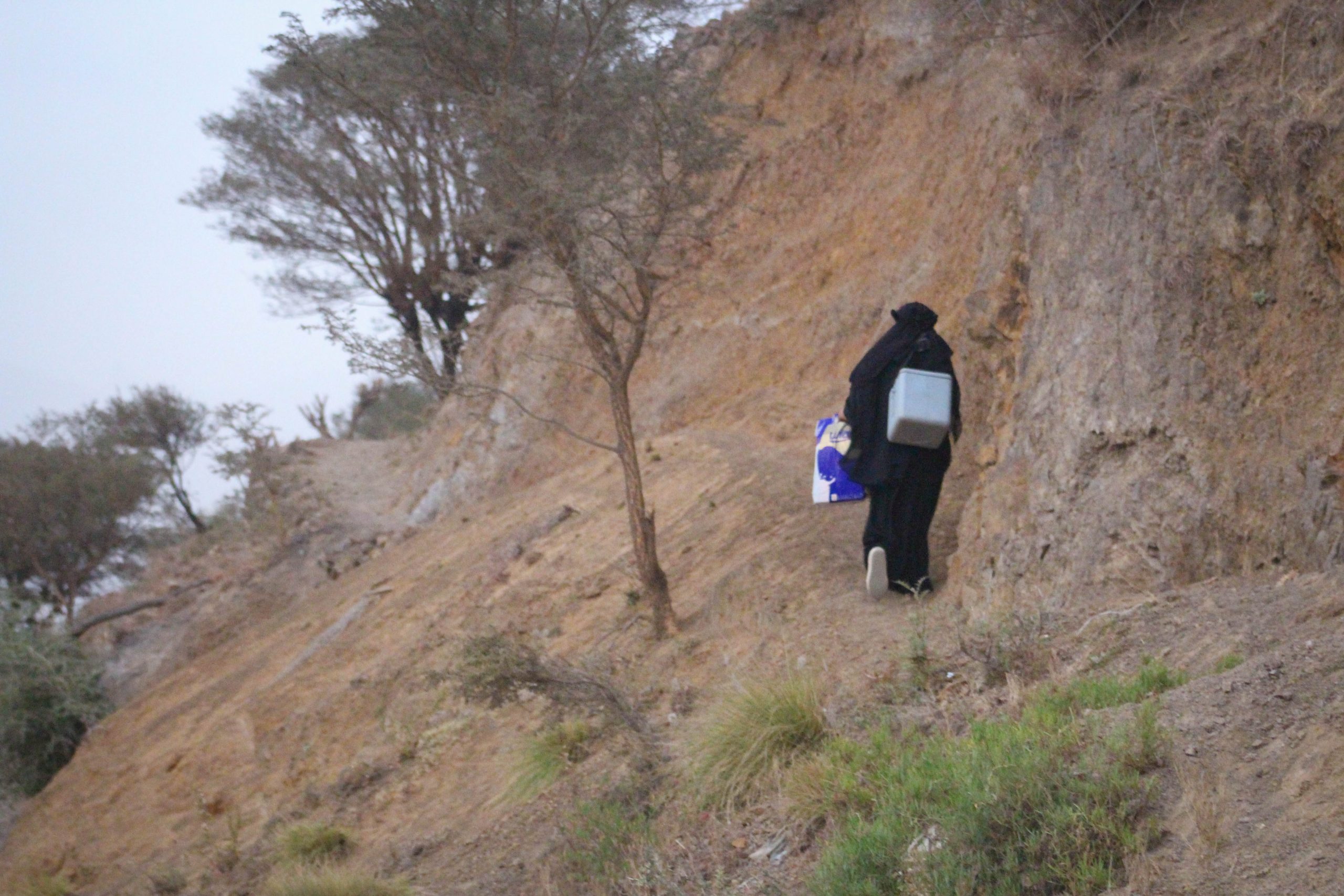Our mission to rid the world of COVID-19.
Marwan Mohamed Abdulfatah Al-Shami has been the Immunisation Officer at UNICEF Yemen for almost two years now. Before that, he was a cold chain and vaccine management consultant with UNICEF at the Ibb field office for 3 years. It’s his job, just like many of our colleagues across the world, to make sure that the COVID-19 vaccines our generous donors have donated are safely delivered to the people who need them most.
We asked him to explain how is the situation in Yemen right now, and the main challenges they are facing in the race to protect the people of Yemen and help end this pandemic.
Pain, suffering and hope! COVID-19 pandemic in Yemen… and the rest of the world.
In Yemen, the world’s worst humanitarian crisis, the pandemic has added more pressure to an already extremely vulnerable health system. Severely underfunded, understaffed and poorly equipped, it is now on the verge of collapse.
If you think that only 1% of the population in Yemen is now fully vaccinated, compare to over 75% in wealthy countries, the inequality is huge. We have also sadly lost already 150 health care workers due to COVID-19. Each one of them had a story to tell. A day they were proud of because they’ve helped to save a life, or a family that will miss them forever. They had spent years studying, learning and working hard to become skilled health professionals that could have helped save even more lives.
But we are still here, stronger, on the frontline, doing our best to serve and bring hope to all the people of Yemen.

UNICEF’s role in delivering vaccines in Yemen.
Thanks to our donors, UNICEF is not only supporting the procurement and shipment of COVID-19 vaccines in Yemen, but it is also supporting the in-country logistics, like governmental clearances, warehousing, storage, and distribution of the vaccines to the COVID-19 vaccination centres.
In addition, we supply all the cold chain equipment to safely deliver the vaccines in the most remote areas. As you know, COVID-19 vaccines must be kept cold – from the time they are manufactured until the moment of vaccination. If they’re not, they won’t work.
But keeping vaccines constantly at the right temperature is far from easy in countries like Yemen. Due to the ongoing crisis, the country is suffering from constant fuel and gas shortage which is causing frequent and prolonged electricity cuts. Keeping the vaccines cold is one of the major problems for the cold chain in Yemen.
Despite these incredible challenges, we never stopped delivering vaccines and saving lives! Not only in Yemen but right across the world.

The ‘last mile’ of a COVID-19 vaccine in Yemen.
The last mile of a COVID-19 vaccine starts in Aden airport when the vaccines arrive. From there we bring them to the central warehouse where they are stored in walk-in cold rooms before been distributed to the different districts. Refrigerated trucks, vaccine carriers and ice packs are used to maintain the vaccines at an optimal temperature range during transportation.
Once the vaccines have reached the district warehouses they are then stored in solar-powered refrigerators.
Since 2017, to face the incredible challenge to keep vaccines cold, UNICEF has been leading a strategic transition into solar-powered systems. A more reliable and sustainable source of power for cold chain operations. (So far, more than 1,700 solar refrigerators have been supplied to districts’ storage facilities and healthcare centres around the country.)
Finally, the vaccines properly stored arrive at the health facilities that provide COVID-19 vaccination services.
From here, brave health workers carry the vaccines in cold boxes and vaccine carriers, travelling every last mile by any means possible – car, motorcycle, bicycle, donkey, camel or on foot – to get vaccines to every last person, even in the most remote villages.

If you wish to help in the fight to rid the world of COVID-19 please donate now!


